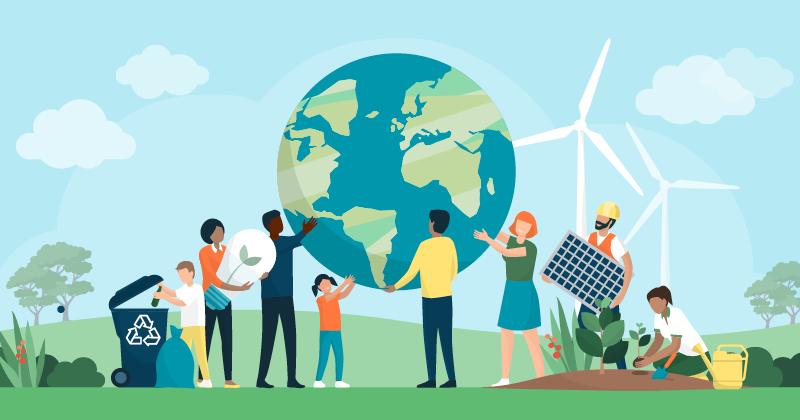Sustainable teaching is a pedagogical approach that focuses on promoting long-term learning outcomes while minimizing negative environmental, social, and economic impacts.
It emphasizes the importance of not only educating students about sustainability but also integrating sustainable practices into the teaching process itself. Here are key aspects of sustainable teaching:
Environmental Responsibility: Sustainable teaching encourages educators to reduce their ecological footprint by adopting environmentally friendly practices.
This may include reducing paper usage, minimizing energy consumption, also incorporating sustainable materials into the classroom. By modeling eco-conscious behavior, teachers can inspire students to become environmentally responsible citizens.

Holistic Learning: Goes beyond traditional subject matter by emphasizing holistic education. It encourages students to consider the interconnectedness of ecological, social, and economic systems.
This holistic perspective helps students develop a deeper understanding of complex real-world issues, such as climate change, resource depletion, and social justice.
Experiential Learning: Often involves hands-on, experiential learning opportunities.
Whether through field trips, community service, or project-based learning, students actively engage with sustainability concepts, gaining practical skills and a sense of responsibility for the world around them.
Critical Thinking: Fosters critical thinking skills by encouraging students to question the status quo also explore alternative solutions to global challenges.
It promotes discussions and debates on sustainability topics, allowing students to develop their analytical and problem-solving abilities.
Cultural Competence: Incorporates cultural competence by recognizing also valuing diverse perspectives and traditions related to sustainability.
It encourages students to appreciate the cultural diversity of sustainable practices and solutions worldwide.
Lifelong Learning: Sustainable teaching instills a love for learning also encourages students to become lifelong learners.
Empowering them with the skills and knowledge needed to adapt to a changing world. Prepares them to make informed decisions and also take action throughout their lives.
Collaboration: Sustainable teaching often emphasizes collaborative learning and teamwork, mirroring the collaborative nature of addressing sustainability challenges. Students learn to work together, pooling their diverse talents and knowledge to find innovative solutions.
Conclusion
Sustainable teaching is not just about teaching sustainability; it’s about teaching in a way that embodies sustainable principles and values.
It equips students with the knowledge and skills needed to make a positive impact on the world. Fostering a sense of responsibility for the planet and future generations. By integrating sustainability into education, we can create a more environmentally conscious and socially responsible society. 온라인카지노사이트